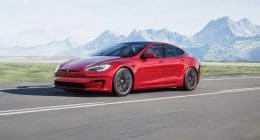Ather Energy, a relatively young electric automobile startup plans to clone Tesla’s charging infrastructure business model and implement it in India. The company is already planning its blueprints that indicate where these charging stations will be places — in malls, restaurants, cinemas, offices and business parks. Ather plans to have at least a few of these charging ports ready to go before the launch of its smart electric scooter, the Ather S340.
Ather Energy is one of very few hardware startups of the country, and was founded in 2013 by IIT graduates Tarun Mehta and Swapnil Jain. Its investors include Hero MotoCorp, Tiger Global, and Flipkart founders Sachin & Binny Bansal. Hero MotoCorp owns the biggest stake, about 26-30% after it made what it calls a Rs. 2015 crore “strategic investment” in the company.
Ather’s plan to replicate Tesla’s model is primarily dependent on changes being made to the Electricity Act, 2003. Under the present regulations, an individual or private institution cannot sell electricity unless a discom license is obtained to distribute power from the respective state electricity regulatory commission.
The chief business officer at Ather Ravneet Phokela elaborated on this saying,
Say we are to set up a charging station at a cafe, under the current rules we cannot install a meter in our name as an EVSE (electric vehicle supply equipment) business. And even if the cafe installs its own meter, it cannot resell electricity. This raises questions on the business model for EVSEs.
Since last year, Ather has been talks with multiple individuals and departments in the government to create these changes in the Act. Ather’s issue has been moved form the Prime Minister’s Office to the Department of Industrial Policy and Promotion to the officials at the Department of Heavy Industry. The secretary of this department has written to the Ministry of Power and Ather will be notified once there is an update.
If Ather secures permission to sell electricity from its own charging stations, it will open up the infrastructure for use by other electric vehicle companies as well. It takes inspiration from Tesla, the world’s most aggressive electric vehicle firm. Tesla has built over 5,400 superchargers with the goal of enabling long-distance travel for more than 200,000 Tesla owners around the world and plans to double this number in 2017. It has over 9,000 destination charging points in resorts, hotels, and restaurants.
Reji Kumar Pillai, president and chief executive of India Smart Grid Forum, a public-private partnership of the power ministry explained in a statement the necessity for clarity in the sector when it comes to regulations. He said,
There is a need for clarity on the regulatory aspect of sale of electricity by third parties to EVs (electric vehicles) which is not permitted under the Electricity Act. Some utilities and regulators have taken a view that charging EVs from a commercial connection maybe considered as a service. In order to attract large investments for setting up a chain of charging stations, regulatory clarity is required.
According to the Act, individuals and private institutions are allowed to generate electricity outside the electricity grid and use it for charging EVs. It is going to be very interesting to see how Ather’s plan works out in India.





